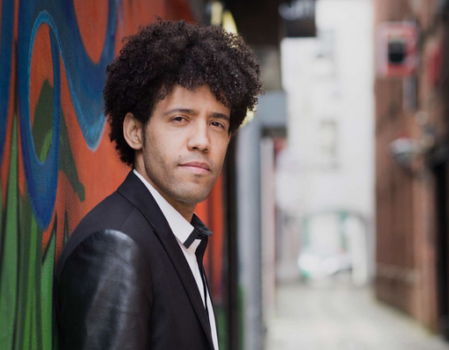Conductor Rafael Payare led the Los Angeles Philharmonic in a performance of “Darker America” by composer William Grant Still on April 13, 15, and 16 at Walt Disney Concert Hall. The evening was a powerful tribute to Still (1895-1978) known as “the dean of African American composers.” Over his six-decade career, Grant composed operas, chamber music, symphonies, choral works, songs, and concertos.
Payare is the Music Director of Orchestre symphonique de Montréal, an association that began with the 2022/23 season. The Venezuelan is now marking his fourth season as Music Director of the San Diego Symphony Orchestra.

The program also included Wagner’s “Wesendonck Lieder” with soprano Dorothea Röschmann, and concluded with Brahms Symphony No. 1
“Darker America” is a suite of seven pieces that were first sketched in 1924 and first performed in 1930. A final revision dates to 1935. It’s considered to be one of Still’s most important works. The 12-minute piece reflects the rich cultural heritage of African Americans, drawing on spirituals, blues, and other musical traditions. The work is a celebration of the beauty and resilience of Black culture, even in the face of adversity and oppression.
The piece’s solemn introduction by the strings relayed a haunting melody. It soon gave way to complex rhythms and rich harmonies, executed with clarity and depth.
The fourth movement is a tribute to the African roots of Black music — it features intricate rhythms and evocative passages relaying both the diversity and beauty of the continent. Payare’s whole being leaned into the conducting (as in the Brahms symphony), and the orchestra responded as if hand in glove.
“Darker America’s” final movement finished the performance with verve. The syncopated rhythms were a match to popular African American dance music of the time. It was an infectious groove.
The acclaimed German soprano Dorothea Röschmann easily mastered Wagner’s “Wesendonck Lieder,” an iconic song cycle composed between 1857 and 1858. It’s based on poems by Wagner’s muse Mathilde Wesendonck, the wife of one of Wagner’s patrons. Lush romantic melodies flowed from Röschmann especially during the emotional tour de force “Schmerzen,” the fourth song in the cycle.

Payare conducted Brahms No. 1 sans sheet music, the expansive otherworldly opening flowing like a foreboding mist from the orchestra. The woodwinds shone in the second movement, their solos expertly woven in. Payare led the third movement, marked allegretto, with a light touch, drawing out the playful dance-like quality of the music.
Payare carefully constructed the final movement’s accelerating tension, and the ultimate climaxes were explosive — still, they never overpowered.
Los Angeles Philharmonic concerts and events.
Los Angeles Philharmonic packages and ticket information.
___________
Feature photo: Composer William Grant Still / Photo by Carl Van Vechten via the Library of Congress, in the public domain
